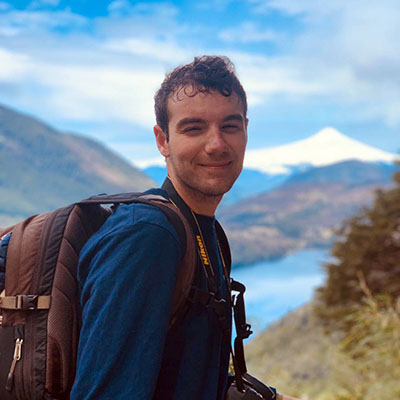John McClure
 Name: John C. McClure
Name: John C. McClure
Department: Environmental Studies and Anthropology
What Award/ Scholarship did you receive? Deans' Undergraduate Award
What year do you expect to graduate? Spring 2020
Where do you call home? Ann Arbor, Michigan
With all of the choices for college, what made UC Santa Cruz stand out? The campus and its natural surroundings, the academic areas of expertise of the university, and the opportunities that would be available to me through the university.
What is your field of focus? My focus academically has been looking at human-environment interactions, including the fields of Global Environmental Justice and Environmental Anthropology
What do you hope to do once you graduate from UC Santa Cruz? A service-year fellowship and then graduate school
What is one memorable moment that stands out for you as a student here? Taking the course Intro to Cultural Anthropology, the first Anthropology course I ever took, in my Junior year and loving it so much that I decided to double major in it.
What is your one piece of advice for incoming students about life at UC Santa Cruz? Take advantage of both the academic opportunities available to you as well as the student org opportunities available to you. And get involved early!
How will this scholarship impact your academic life /research? It has given me the confidence in myself and my research to continue pursuing academics in this field of study
Comments from John McClure's faculty mentor:
John McClure received a Deans' Award for Differential Vulnerability to Climate Related Disasters Among Communities Along the Santa Cruz Coastal Landscape. In the letter of support for this award, his faculty mentor stated “Mr. McClure is an imaginative and diligent student who has written an excellent investigation of differential vulnerability to climate change in Santa Cruz. I first came to know Mr. McClure in the fall of 2017. He was an excellent student in a large survey class on the Anthropocene. Since then he has continued to pursue an interest in environmental anthropology, including on a study abroad program in Chile. In the spring of 2019 he took a senior seminar in environmental anthropology and the politics of nature with me, choosing to do an independent research project on climate change preparedness and vulnerability in Santa Cruz. This was such an outstanding paper that I agreed to work with him in an additional independent study in winter of 2020. His findings, that in Santa Cruz poor people of color are more vulnerable to sea level rise and flooding due to climate change, combine theories of vulnerability, resilience, and infrastructure carefully and rigorously. This is the kind of policy relevant work that anthropologists should be doing. He undoubtedly has a bright future as a scholar or policy maker.”
